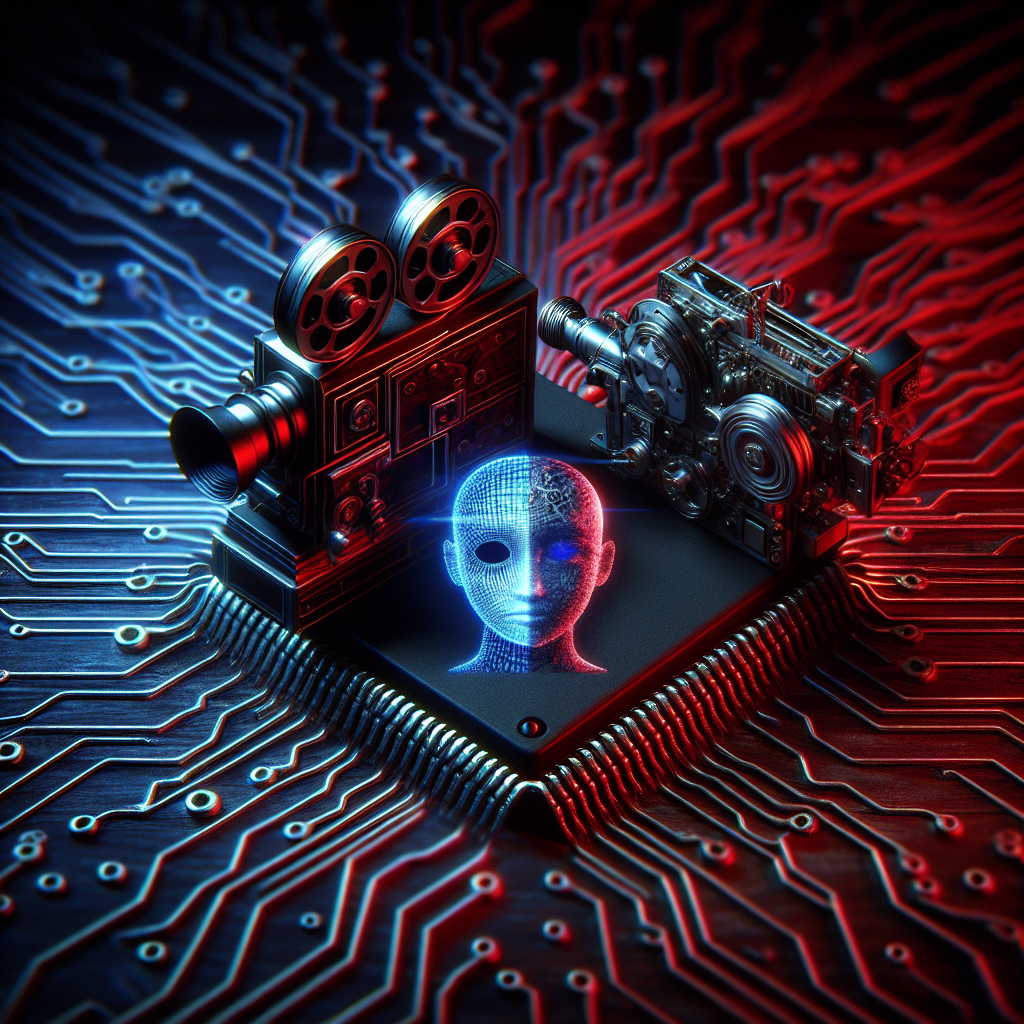Artificial Intelligence (AI) has become an integral part of the entertainment industry, revolutionizing the way we consume media and creating new opportunities for creativity and innovation. From personalized recommendations on streaming platforms to virtual reality experiences, AI has transformed the entertainment landscape in ways we never thought possible. However, with this rapid advancement comes a host of potential risks and concerns that need to be addressed.
The Risks of AI in Entertainment
1. Loss of Human Creativity: One of the primary concerns with the increasing use of AI in entertainment is the potential loss of human creativity. As AI algorithms become more sophisticated, there is a risk that they could replace human artists and creators, leading to a homogenization of content and a lack of diversity in the industry. While AI can certainly assist in the creative process, it should not be seen as a replacement for human ingenuity and imagination.
2. Bias and Discrimination: Another major risk of AI in entertainment is the potential for bias and discrimination in the content that is created and recommended to users. AI algorithms are only as good as the data they are trained on, and if this data contains biases or prejudices, it can lead to discriminatory outcomes. For example, AI algorithms used to recommend movies or music may inadvertently reinforce stereotypes or exclude certain groups of people from accessing content.
3. Privacy Concerns: The use of AI in entertainment also raises significant privacy concerns. As AI algorithms collect and analyze vast amounts of data about users’ preferences and behaviors, there is a risk that this information could be misused or compromised. For example, AI systems that recommend content based on users’ viewing habits may inadvertently reveal sensitive information about their personal lives, leading to potential privacy violations.
4. Security Risks: In addition to privacy concerns, the use of AI in entertainment also poses security risks. As AI systems become more integrated into the entertainment ecosystem, they become potential targets for cyber attacks and hacking. If these systems are compromised, it could lead to the unauthorized access of sensitive user data or the manipulation of content, leading to potential harm to individuals or organizations.
5. Job Displacement: The increasing use of AI in entertainment also raises concerns about job displacement. As AI systems become more advanced and capable of performing tasks traditionally done by humans, there is a risk that many jobs in the industry could be automated, leading to unemployment and economic instability for those affected. It is essential for policymakers and industry leaders to address these concerns and ensure that the benefits of AI are shared equitably among all stakeholders.
FAQs
Q: Can AI replace human creativity in entertainment?
A: While AI can certainly assist in the creative process, it should not be seen as a replacement for human creativity. AI algorithms are only as good as the data they are trained on, and they lack the intuition, emotion, and imagination that human artists and creators bring to their work.
Q: How can AI algorithms be biased in entertainment?
A: AI algorithms can be biased in entertainment if they are trained on data that contains biases or prejudices. For example, if an AI system is trained on a dataset that predominantly features content created by a certain demographic group, it may inadvertently exclude or stereotype other groups in its recommendations.
Q: What steps can be taken to address the privacy concerns surrounding AI in entertainment?
A: To address privacy concerns, industry leaders should prioritize transparency and accountability in the use of AI algorithms. They should also implement robust data protection measures and ensure that users have control over how their data is collected and used.
Q: How can the entertainment industry mitigate the security risks associated with AI?
A: To mitigate security risks, the entertainment industry should invest in robust cybersecurity measures and regularly update and patch AI systems to prevent vulnerabilities. They should also train employees on best practices for cybersecurity and implement protocols for responding to potential threats.
Q: What can be done to prevent job displacement in the entertainment industry due to AI?
A: To prevent job displacement, policymakers and industry leaders should invest in retraining and reskilling programs for workers affected by AI automation. They should also prioritize diversity and inclusion in the development and deployment of AI systems to ensure that the benefits are shared equitably among all stakeholders.
In conclusion, while AI has the potential to revolutionize the entertainment industry and create new opportunities for creativity and innovation, it also poses significant risks and concerns that need to be addressed. By prioritizing transparency, accountability, and ethics in the use of AI, the entertainment industry can harness the power of this technology while minimizing its potential harms. It is essential for policymakers, industry leaders, and stakeholders to work together to ensure that AI is used responsibly and ethically in entertainment, ultimately creating a more diverse, inclusive, and sustainable industry for all.

